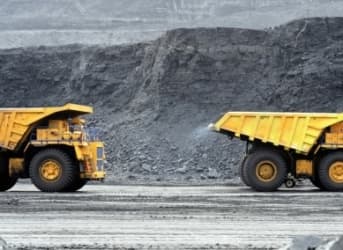Tobacco, alcohol, and gambling stocks are often called “sin” stocks because of the nature of their industry. These companies have traditionally had considerably less coverage from analysts and the companies themselves on average have lower valuations than comparable non-sin stocks. Now coal miners may be getting ready to be forced into the category at arguably one of the most challenging times in the industry’s history. This creates an opportunity for both coal companies and investors.
Coal miners are increasingly becoming a target for social activists that argue the firms contribute too much to climate change and are detrimental to society. Activists appear to be trying to pressure large institutional money managers to stop investing in the coal mining industry. Given the magnitude of challenges across the sector, that’s not a hard argument to make in many cases. Recently, for instance, German insurer Allianz SE, which manages more than $2 trillion in assets, announced that it would no longer invest in mining companies or utilities that generate more than 30 percent of their power from coal.
Allianz is just the latest in a string of investor defections from the coal sector including the Rockefeller Brothers Fund, the Church of England, the Norwegian Sovereign Wealth fund, and Stanford University. None of this will lead the coal industry to disappear tomorrow; it’s still a very big business and generates nearly 40 percent of the world’s electricity plus fuels blast furnaces for making steel. Related: Will Goldman Be Right After All?
The anti-coal campaign is probably being short-sighted in that regard. No matter how serious an issue one feels climate change is, there is little chance that the energy needs of the world are going to fall 40 percent any time soon. Similarly, in the short-term, there is no plausible way that any alternative source from conventional fossil fuels to green energy sources can make enough of a dent in the world’s energy needs. As a result, like it or not, the world is going to continue to use massive amounts of coal.
To make that use of coal more environmentally friendly, new technologies and new equipment are needed. Such technologies certainly won’t totally offset the negative environmental effects of coal, but they will mitigate them. Yet these technologies cost money – money that coal companies do not have in the current energy crisis. And with environmentalists reducing the coal industry’s access to capital, they are all but ensuring that coal companies will do absolutely nothing to upgrade their facilities and make them more environmentally friendly. Related: OPEC Members In Jeopardy, How Long Can They Hold Out?
All of this actually creates an opportunity for investors. Sin stocks on average have higher returns than non-sin stocks because of the reduced price the investor has to pay for their cash flows. If institutional investors sell their coal stocks (and some utilities) en masse, this will artificially depress the price of these firms below the fair value of the stocks based on their cash flows. Retail investors who are willing to deploy their capital into coal stocks can get assets cheaper than they otherwise could. This should lead to larger dividend payout rates over time and eventually positive capital gains as stocks slowly move back to fair value.
In addition, this shift presents an opportunity for coal companies to move from being largely institutionally owned stocks to being retail investor owned stocks. This requires that investor relations departments for coal companies think about how to approach their jobs in a different way. In particular, when dealing with retail investors, a good story, an accessible business plan, and a growing dividend (or plan to grow dividends) can all help on this front. Coal companies cannot stop environmental activists from targeting them, but they can adjust to the criticism and continue to access capital markets in the same way that tobacco firms have.
By Michael McDonald of Oilprice.com
More Top Reads From Oilprice.com:
- These 2 Breaking Stories Took A New Turn Over The Weekend
- 7 Reasons Why Oil Could Fall Even Lower Before Christmas
- The Golden Age Of Coal In China Is Over



















The number of coal miners in 1980 was 228,569, but only 131,306 by 1990, 71,522 by 2000, 82,595 by 2006. Half way into Obama's term, the number was only down to 80,209.
Eliminating coal entirely over several decades, including for steel and cement production, would eliminate few coal miners than Reagan's policies.